Studies
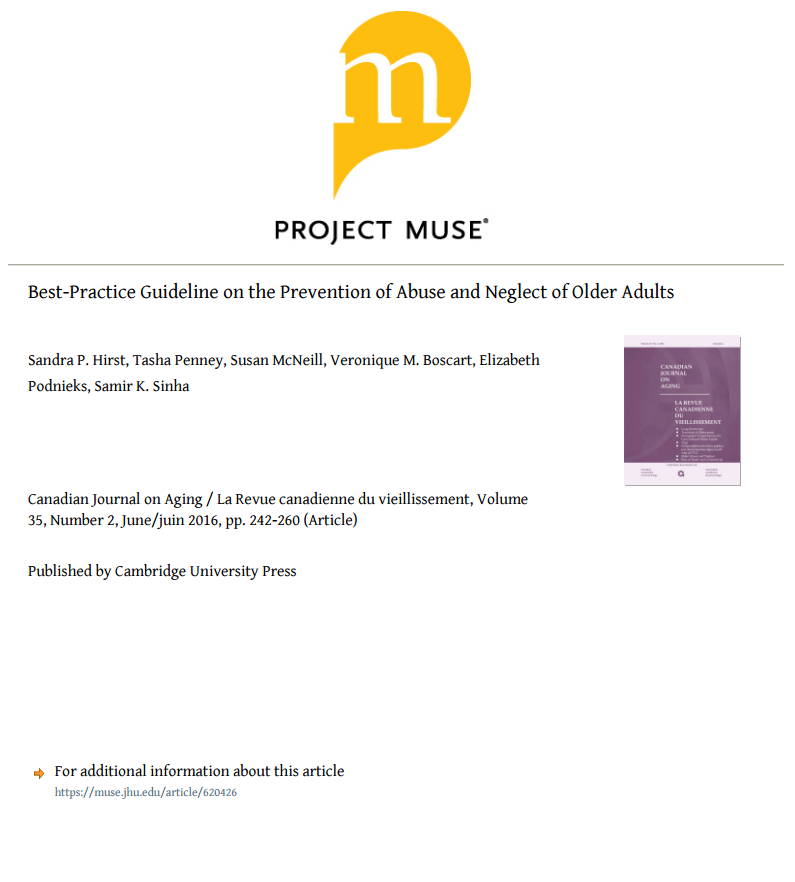
Tasha Penney, Registered Nurses’ Association of Ontario
Susan McNeill, Registered Nurses’ Association of Ontario
Veronique M. Boscart, Conestoga College Institute of Technology and Advanced Learning
Elizabeth Podnieks, Ryerson University
Samir K. Sinha, Mt. Sinai Hospital, Toronto
Abstract:
"A systematic review of the literature was conducted to identify effective approaches to preventing and addressing abuse and neglect of older adults within health care settings in Canada. The review was conducted using databases searched from January 2000–April-May 2013. Additionally, expert panel members submitted article citations from personal archives. Two research associates (NRA) screened each title and abstract for inclusion. After inter-rater reliability was determined between the NRAs (Kappa score of 0.76), the records were divided, appraised, and data extracted independently. The review resulted in 62 studies that focused on identifying, assessing, and responding to abuse and neglect of older adults; education, prevention, and health promotion strategies; and organizational and system-level supports to prevent and respond to abuse and neglect. Abuse and neglect of older adults remains under-explored in terms of evidence-based studies; consequently, further research in all of the areas described in the results is needed."
To access the full document:
Source: Project MUSE , Canadian Journal on Aging, 2016, Vol.35 (2), pp.242-260
The following resource is part of the Family Violence Initiative, funded by the RCMP. Find similar tools by searching for the FVIF tag or consult the list of available resources.
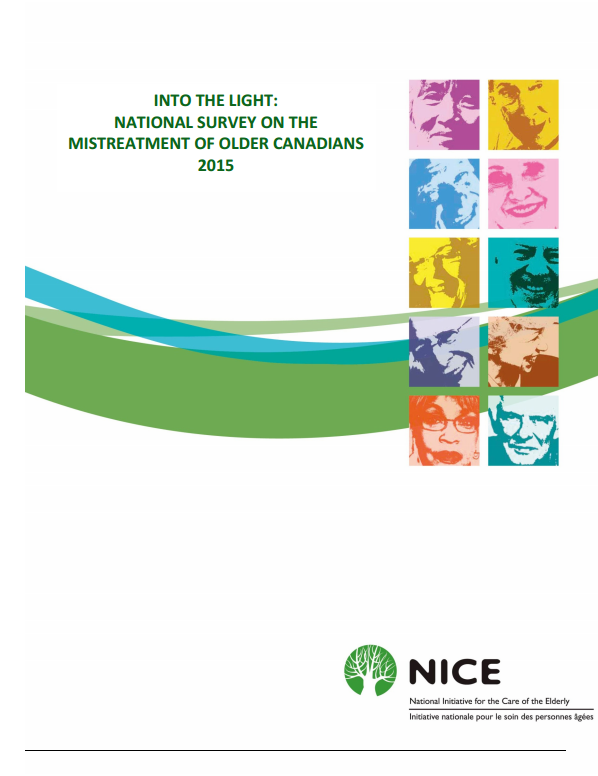
"The National Survey on the Mistreatment of Older Canadians is a prevalence study to provide data on the prevalence, risk factors, and causes of mistreatment of older Canadians. The study will survey a representative sample of 8,100 adults, aged 55 years and older, living in private dwellings in Canada on topics including physical, psychological, sexual and financial abuse and neglect perpetrated by informal caregivers.”
Funded by: New Horizons Program of Human Resources and Skills—Development Canada (Government of Canada)
Source: National Initiative for the Care of the Elderly
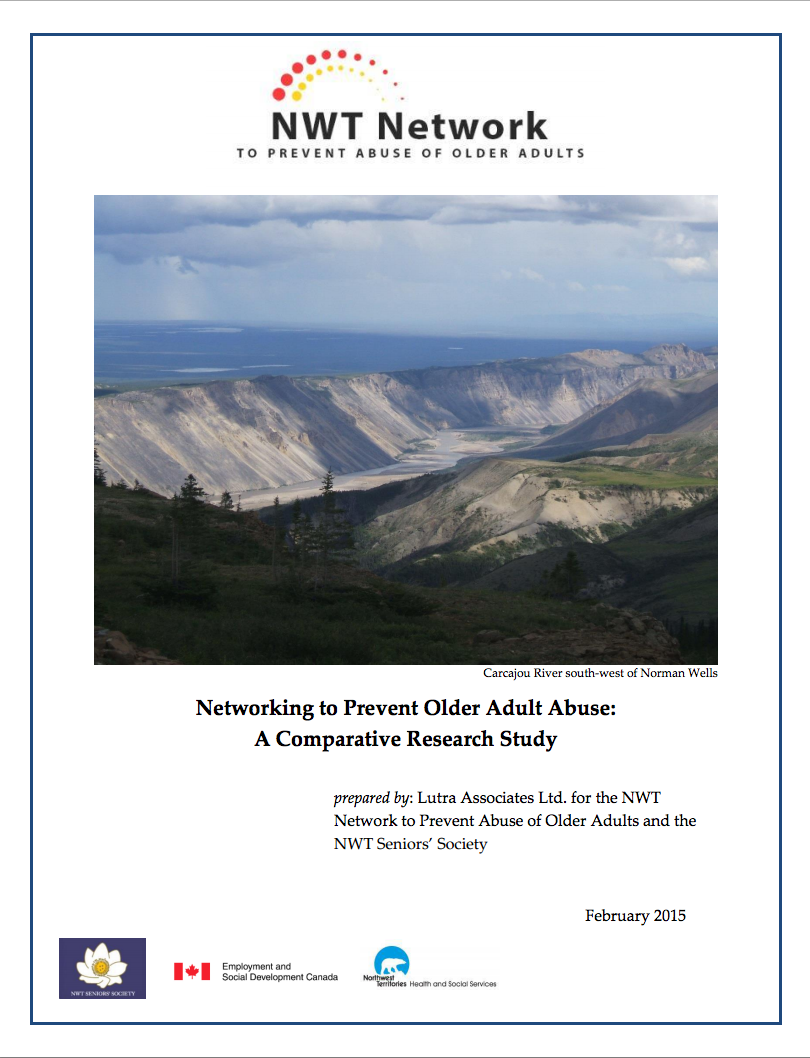 "In 2014, the NWT Network launched a comparative research to:
"In 2014, the NWT Network launched a comparative research to:
1. Measure changes in awareness and responses to older adult abuse since 2010.
2. Gauge the impact of NWT Network measures taken since 2010 including the formation of networks, partnerships, training sessions, community events, and information campaigns.
3. Consider next steps for preventing older adult abuse throughout the NWT.
Read about the similarities and differences in the perceptions, understandings, and responses to older adult abuse in the NWT between 2010 and 2015 in this new research developed by Lutra Associates Ltd. on behalf of the NWT Network."
Source: The NWT Network to Prevent Abuse of Older Adults
The following resource is part of the Family Violence Initiative, funded by the RCMP. Find similar tools by searching for the FVIF tag or consult the list of available resources.
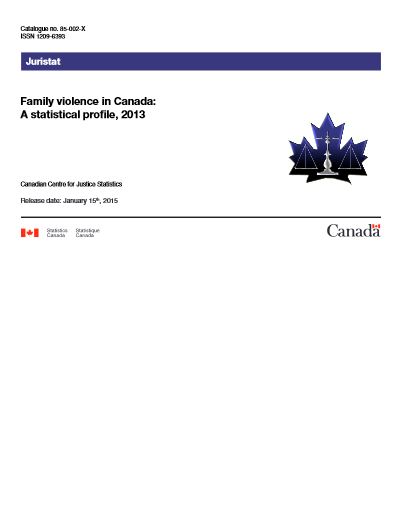
As part of this initiative, Statistics Canada has released annual statistics on family violence since 1998. By examining the nature and extent of family violence in Canada, this report helps inform family violence policy and program development."
Source: The Canadian Centre for Justice Statistics (2015)
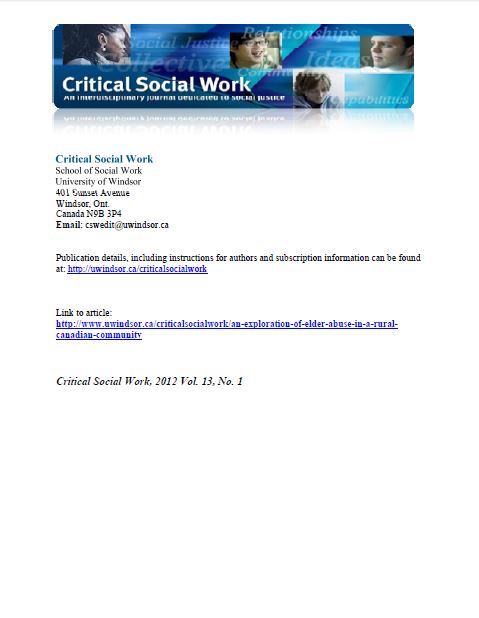
These attributes predicted a rate of disclosed elder abuse within the lower end of the four to ten percent range typically reported in the literature. However, an incidence rate of 19.1% was reported nearly double the upper end of the range, with 137 separate acts of verbal, emotional, and financial abuse reported by participants to their peers. Formal paid caregivers were identified as the most frequent perpetrators though two thirds of the incidents were not reported to anyone at the time they occurred primarily due to embarrassment, fear, being dependent upon the abuser, or simply not knowing who to tell about the abuse. In the minority of instances when the abuse was reported the most common sources informed were the police, a family physician, or a helping professional in the community."
Source: Critical Social Work, School of Social Work, Windsor University
Page 7 of 8

















